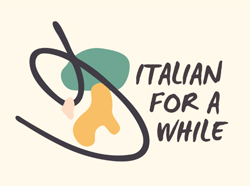Italy
Coastal BeachesItaly has long been a dream destination for expats seeking a rich cultural experience, excellent quality of life, career opportunities in Europe, or a great place to retire. From the historic and contemporary streets of Rome, to the artistic hubs of Florence, to the to the innovation and style of Milan, the options are as varied as they are inspiring. Throw in the stunning coastlines of Cinque Terre and the Amalfi Coast, the gorgeous countryside of Tuscany, Piedmont and Umbria, and Italy clearly offers a lifestyle that blends tradition with modern convenience.
Expats, including digital nomads, entrepreneurs, and professionals, are drawn to its growing remote work infrastructure, favorable visa options, and world-class cuisine. With its welcoming communities, one of the largest economies in Europe, and breathtaking landscapes, Italy remains a top choice for those looking to live and work abroad.
Italy’s diverse regions offer expats a rich variety of lifestyles, from the economic and fashion hub of Milan in the north to the sun-soaked shores of Puglia in the south. The Italian countryside, with its rolling vineyards and olive groves, provides a slower pace of life and world-renowned wines and olive oils. The coastline of Liguria offers a balance between seaside living and easy access to Italy’s economic centers. The Italian Alps and Dolomites provide year-round outdoor opportunities, from skiing to hiking, while the central Apennines offer a more rugged, off-the-beaten-path experience. Meanwhile, Italian cuisine remains an essential part of daily life, with each region offering its own specialties—ensuring that no matter where expats settle, they’ll be immersed in a deep culinary tradition.
Italy offers both opportunities and challenges for expats looking to work or start a business. As one of the Eurozone’s largest economies, Italy has key industries that include fashion, automotive, manufacturing, and tourism, with major hubs in Milan, Turin, and Bologna. Work visas can be difficult to secure, often requiring employer sponsorship, while self-employment and elective residence visas have strict financial criteria. Despite bureaucratic hurdles and high taxes, there are absolutely emerging opportunities in digital innovation, green energy, and an ever-increasing interest in accommodating those interested in a remote-work lifestyle.
However, while Italy has much to offer expats, such as a relatively low cost of living outside major cities, and a welcoming expat community, it also comes with challenges such as bureaucracy, high unemployment in some regions, and a slower pace of life that can take significant adjustment for some people.
For those willing to navigate these realities - and many expats are thrilled to embrace that slower pace of life - Italy offers a deeply rewarding experience that blends old-world charm with modern opportunities and convenience.












